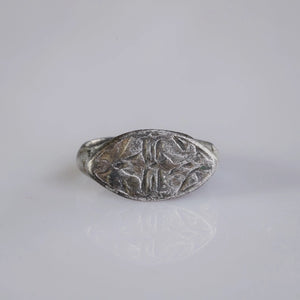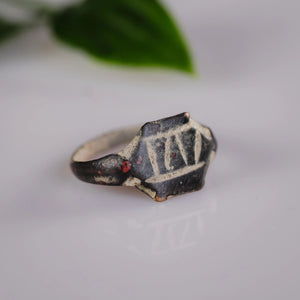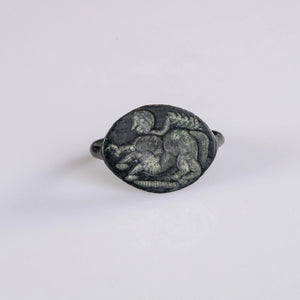Interesting facts
Did Two Brothers Rule Rome?
When we think about the turbulent chapters of Roman history, few images capture the imagination as vividly as two brothers rising together to challenge the status quo. The Gracchi brothers—Tiberius and Gaius—stand out as singular figures who tried to steer Rome toward profound social reforms. Yet, the question remains: did these siblings actually “rule” Rome, or is their legacy better understood as a story of political activism and tragedy within the framework of the Republic?
The Political Setting: Republic Versus Power
To explore this, it’s essential to first understand the political system they operated within. The Roman Republic was a complex and wary creation, deliberately designed to prevent the concentration of power in the hands of one person. After the long shadow of kingship, Romans were deeply suspicious of any individual who might seem too powerful. Instead, power was spread across a wide array of elected magistrates, the Senate, and popular assemblies. This mosaic ensured no ruler could simply impose their will unchecked. Against this backdrop, the stories of the Gracchi brothers reveal how visionary leadership and democratic ambitions can collide violently with entrenched aristocratic interests.
Tiberius Gracchus: The First Brother’s Bold Challenge
Tiberius Gracchus emerged around 133 BCE at a critical moment. Rome’s victories in war had expanded the Republic’s territories, but these conquests led to one of the most pressing social problems Rome had faced in decades: the concentration of land in the hands of wealthy aristocrats. Public lands were being appropriated illegally by elites, pushing small farmers—Rome’s backbone, both militarily and socially—into poverty and displacement.
Tiberius, elected as tribune, took up the cause of these disenfranchised citizens by proposing a radical land reform bill. His plan was straightforward in its vision yet revolutionary in impact: reclaim public land (ager publicus) that was being used unlawfully and redistribute it in small plots to landless Romans. The idea was that this would not only restore economic balance but also rejuvenate the ranks of the citizen-farmer who provided soldiers for the Republic’s armies.
But this proposal hit a wall. The Senate, dominated by aristocrats who felt threatened by any shift in land ownership and wealth, mounted fierce opposition. What followed was a mix of political maneuvering and violent conflict. Tiberius’s reform efforts unleashed deep tensions within Roman society. Ultimately, he met a brutal death during a riot, a stark signal of how fragile the Republic’s political order had become.
Tiberius never held supreme power or shaped Rome’s policies unilaterally, but his role as a determined tribune pressing for change left a deep mark on the Republic. He was a leader who stirred the conscience of Rome, not a ruler who imposed his will from the top down.

Gaius Gracchus: The Younger Brother’s Wider Ambitions
A decade after Tiberius’s death, his younger brother Gaius Gracchus emerged as a political force with an even bolder agenda. Elected tribune multiple times, Gaius was determined to carry his brother’s unfinished work forward and expand it.
Where Tiberius had focused primarily on land redistribution, Gaius sought a more comprehensive program. He proposed subsidized grain to feed the urban poor, reforms in the courts designed to reduce corruption, and laws to extend citizenship rights, among other measures. His vision was not simply economic but deeply social, aimed at addressing the root causes of inequality and political disenchantment.
Gaius’s leadership style was notable for its direct appeal to the masses. He mobilized popular assemblies and used his tribunate powers creatively to bypass Senate resistance. Still, his reforms triggered fierce resistance from Rome’s elite. Political opponents branded him a dangerous demagogue seeking to destroy the Republic’s foundations.
His career ended much like his brother’s: in political defeat, followed by violence and repression. His death marked a worsening cycle of factional conflict and set the stage for the political upheavals that would eventually end the Republic.
Influence Without Thrones: Understanding Their Power
It is easy to mistake the Gracchi brothers’ significant influence for outright rulership. They did sway public opinion, inspired supporters, and challenged the established order in unprecedented ways. Yet, they never obtained imperium—formal executive power with military command—and certainly never bore any kingship or singular authority.
Instead, their political power was tied to the tribunate, an office created precisely to represent common citizens within the Republic’s framework, but purposely limited in scope and duration. Their authority resided more in moral conviction and popular support than in legal command.
The Gracchi Brothers’ Legacy: Seeds of Change and Warning Signs
The brothers’ attempts at reform, and the brutal backlash against them, exposed the deep divisions within Roman society and government that the Republic had so far managed to contain through a delicate balance of power. Their deaths were not just tragedies for their supporters but warnings for the Republic itself. The political violence that claimed the Gracchi foreshadowed the coming decades of instability. Soon, military figures wielding armies loyal to themselves rather than the state would rise, as would figures like Marius, Sulla, and eventually Julius Caesar. Each would further erode the norms that had kept the Republic running.
It can be said that the seeds of the eventual transition from Republic to Empire were sown, in part, through the struggles of the Gracchi brothers. Their reformist zeal tapped into popular grievances but also revealed how inflexible and resistant to change the Republic’s ruling class was. The lessons from their time remain relevant today, offering insights into the dynamics of political power and reform. For modern readers, delving into these stories provides historical perspective on today's political challenges.
Rethinking “Rulership” and Political Leadership
The story of the Gracchi brothers invites reflection on what it means to govern. Must “rulership” mean formal command with all its trappings? Or can it emerge from the ability to inspire, mobilize, and change the course of the political landscape?
In Rome’s case, the brothers illustrate that the line is blurred. They lacked crowns, imperium, and the usual symbols of kingship but acted with a force that unsettled the entire system. Their popular backing allowed them to wield a kind of informal authority that in some ways resembled rule—or at least a powerful challenge to the ruling class’s monopoly. The tribunates they held, and their land reform initiatives, balanced idealism with pragmatic politics. Though they never centralized power for themselves, their impact rippled through Roman political culture, influencing later figures and debates about citizenship, social justice, and the nature of power.
How did the legacies of the Gracchi brothers influence future Roman political structures?
The legacies of Tiberius and Gaius Gracchus had a profound influence on future Roman political structures. By challenging the status quo and advocating for the redistribution of land and resources, they highlighted the social inequalities that plagued the Republic. Though they did not succeed in their reforms, their actions exposed the Republic's vulnerabilities and paved the way for significant changes in Rome's governance. In the years following their deaths, the concentration of power in individual military leaders like Julius Caesar and Augustus became more pronounced, eventually leading to the fall of the Republic and the rise of the Roman Empire. Their attempts showed that without adaptation and a willingness to address social grievances, even the most powerful systems can falter. The brothers set a precedent for utilizing popular support to instigate political change, influencing not just their immediate successors but shaping the philosophical debates about governance and power for generations.
The lessons the Gracchi brothers impart remain salient for modern readers grappling with political reform, populism, and balancing change within institutions. Their example highlights the challenge reformers face and the risk of entrenched systems resisting change, with sometimes violent outcomes.
Embrace the Past Today!
Explore NowConclusion: Did Two Brothers Rule Rome?
Looking back, the answer is clear: Tiberius and Gaius Gracchus did not rule Rome like kings or emperors. They weren’t monarchs crowned with laurel wreaths, nor did they command armies with absolute authority. Instead, they were tribunes—elected representatives trying to govern through reform and popular support within the Republic’s carefully guarded boundaries. Their legacy is not about sovereignty but about influence—the kind that can spark movements and challenge powerful interests without ever holding unchecked power. Their tragic fates underscore the perils faced by reformers in resistant systems.
Did two brothers rule Rome? Not in the way history often imagines rulers. But they ruled a moment—a fervent chapter in Rome’s story where hope, struggle, and conflict collided. And sometimes, it’s in these moments that the course of history turns.
For those fascinated by history, ancient Roman politics, or pondering the dynamics of change in the modern world, exploring items like the 'Auriga' Roman Silver Ring from the 1st–3rd century can be a unique way to make a tangible connection to these captivating stories. This artifact, offered by Aurora Antiqua, exemplifies the meticulous craftsmanship and deep historical roots that define the era, allowing one to wear a piece of the past with pride and meaning.
Who were the Gracchi brothers and why are they significant?
The Gracchi brothers, Tiberius and Gaius, were Roman tribunes known for their efforts to enact social reforms in the Republic, notably in land distribution. They are significant for challenging the power dynamics of their era.
Did the Gracchi brothers hold any formal power in Rome?
No, the Gracchi brothers did not hold formal executive power. They were elected as tribunes, aiming to represent common citizens through reform rather than rule with absolute authority.
What modern product connects with the heritage of the Roman era discussed in the article?
The 'Auriga' Roman Silver Ring (1st–3rd CE) connects with Roman heritage. It's a wearable link to history, preserving authenticity and craftsmanship.




